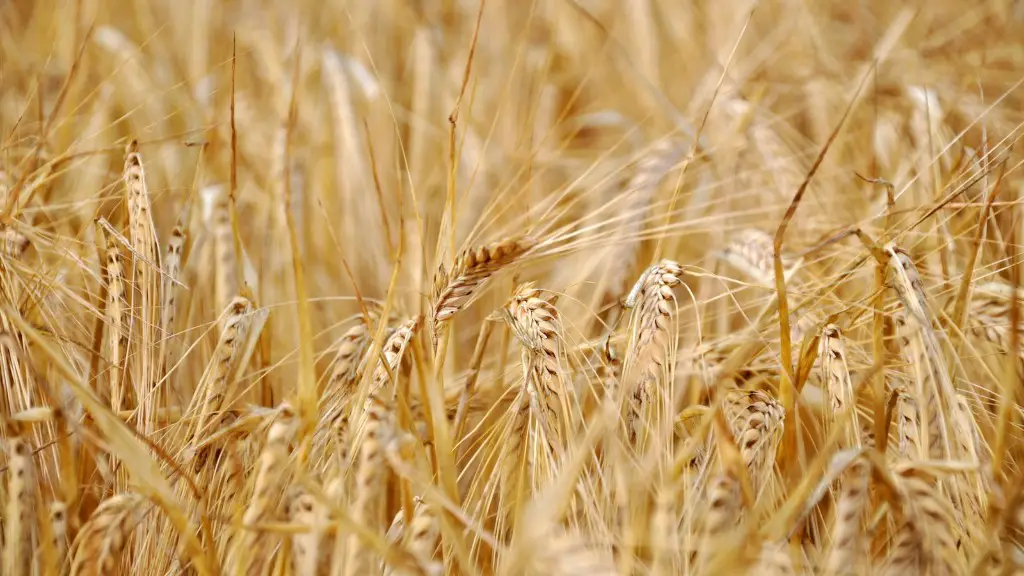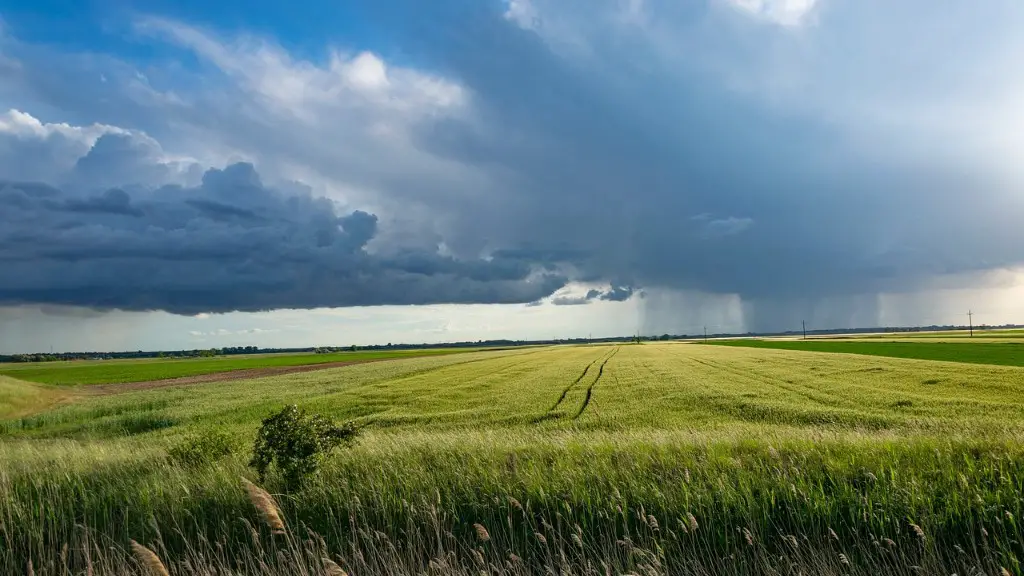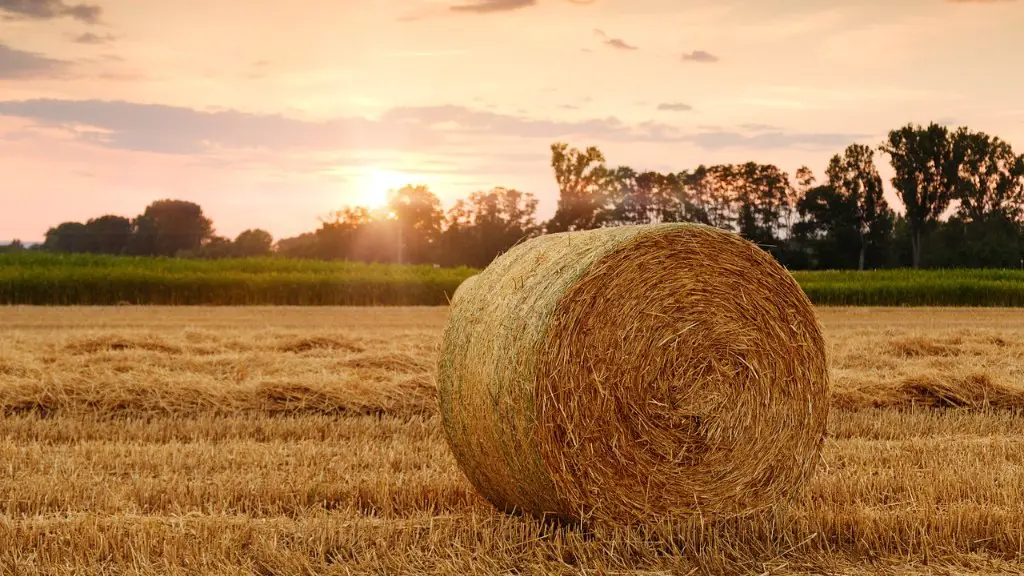Agriculture in Florida is hugely significant. As the second-largest agricultural producing State in the US, accounting for more than 8 percent of the US’ national agricultural production value, it has earned a place among the most agriculturally prolific regions in the country. Moreover, it’s agricultural prowess supports numerous related industries and services, directly and indirectly providing a lot of employment and contributing heavily to the US’ overall economic output. So how much does Florida agriculture really contribute to the national economy?
Well, Florida’s agricultural industry generates over $104 billion of economic activity each year, in terms of both farm level economic activity and its economic ripple effects through a sizable industrial and service sector. This creation of economic activity is having a positive impact throughout the entire US economy, not just the Sunshine State. In fact, the agricultural sector generates an estimated $79 billion each year in economic activity throughout the US economy and 827,000 jobs countrywide are directly related to Florida’s agricultural production.
For instance, the vegetables sector in Florida is the fourth-largest producer in the entire country and generates over $4 billion annually in economic output. The state’s fishing industry is one of the most valuable in the US generating an estimated $3.3 billion each year. Additionally, Florida’s considerable forestry industry extract around 27.7 million cubic feet of timber per year, and generates an estimated $2.2 billion in economic output.
The state’s sugar industry is another integral contributor to Florida’s agricultural industry. Not only does it generate $2.2 billion in economic output, but it’s also responsible for more than 400,000 acres of land planted with sugarcane, creating around 11,000 jobs, primarily located in and around the Southwest region of the state. Furthermore, the citrus and dairy industries in Florida both make significant contributions, adding to the state’s economic activity with their respective outputs of $1.6 billion and $1.4 billion.
All this economic activity is not just limited to local effects in terms of jobs and economic activity, but a great deal of it is exported abroad, primarily to Europe and South America, making international headlines and elevating the perception of the US’ agricultural industry on the global stage.
Business Opportunities in Florida Agriculture
The vast scope of agricultural production in Florida is reflected in the skyrocketing number of businesses that have been established to meet the increased demand for agricultural products. Florida’s agricultural industry provides enormous opportunities for entrepreneurs who have a keen interest in the industry and are looking to capitalize on the lucrative opportunities it presents. Florida’s agricultural industry provides innumerable business possibilities that could potentially treble in value over the coming years and decades.
Some of the most popular businesses in Florida’s agricultural sector include grain and seed companies, aquaculture businesses, nurseries, greenhouses, veterinary services, food processing plants, wineries, and agritourism businesses. Additionally, many flower growers and citrus growers have established their own businesses in the state, taking full advantage of the ideal climate and fertile soil. Moreover, many agricultural research and development firms have been established in the state.
The arrival of new technologies, such as GMO crops and precision agriculture, have contributed to the growth of the state’s agricultural sector. This has also enabled farmers to increase their yield and reduce the cost of production leading to increased profitability. Additionally, large-scale industrial farming operations have established their businesses in the state’s rural areas, allowing them to benefit from the large available tracts of land and the very favorable climate.
Florida’s National Economic Contributions
The value of Florida’s agricultural industry is indisputable. Apart from being a major contributor to the US’ overall economy, it is a major focus of the state’s economy as well. Florida’s agricultural sector also supports numerous related industries, directly and indirectly. As a result, many jobs have been created throughout the state. Furthermore, agricultural activity in Florida contributes significantly to the country’s GDP and tax revenue.
Agriculture in Florida also contributes immensely to the national economy because it’s still a labor-intensive industry. As much as 15 percent of jobs in Florida are related to the agricultural industry, and these jobs often provide family farmers with a steady income and their employees with decent wages and affordable housing.
Moreover, Florida’s agricultural industry serves an important purpose of producing the food required to sustain a growing population. As the population of the US grows, the demand for agricultural products gradually rises and the need for agricultural workers increases proportionally. This provides a huge number of jobs which are essential for the growth and development of the US.
In addition to providing for domestic needs, Florida’s agricultural sector also produces a sizable amount of products for export abroad. These exports form an important part of the US’ balance of trade and generate foreign currency for the country, sometimes even in significant amounts. Furthermore, this export activity helps create jobs in the transportation, logistics, and shipping industries, thus further aiding the nation’s economy.
Agricultural Technology Adoption
The state’s agricultural sector has been at the vanguard of technological advancement in recent years, aiming to increase its productivity and profitability even further. In recent years, the adoption of newer technologies, such as precision and robotics, have enabled farmers to produce more with less effort, while reducing the risk of crop damage and losses due to pest infestations and weather-related events.
Furthermore, new technologies, such as GPS-driven tractors and drones, have made agricultural operations far more efficient and precise than in the past. This has enabled farmers to increase their yields and reduce their costs of production, making them even more profitable. Additionally, these new technologies have enabled farmers to employ fewer people, thus providing job opportunities in other related industries.
The increased adoption of high-tech farming methods has also allowed growers to cultivate a larger variety of crops and increase their yields despite the inherent constraints of small areas. Moreover, the use of high-tech agricultural equipment has reduced labor costs and enabled farmers to increase their efficiency and realize higher returns on their investment.
GMO Cultivation
Another notable advancement to come out of Florida’s agricultural sector is the cultivation of genetically modified seeds. These GMO seeds are designed to be resilient to extreme weather conditions and pest infestations, which has enabled growers to produce higher yields with fewer inputs. Additionally, many GMO crops also require less processing, enabling growers to reduce their costs of production.
Moreover, the state’s vibrant agricultural sector is being propelled by the emergence of a new industry, biotechnology. This sector raises the possibility of new food sources, improved production methods, and a better understanding of the environment. This could lead to the development of new varieties of crops and animals, offering the potential to revolutionize the food production process radically.
Furthermore, biotechnology offers the potential to increase food production and enable more efficient utilization of land. It also offers the potential to reduce food waste and increase the nutritional value of food. All of these advanced technologies have the potential to contribute significantly to the national economy and improve the lives of Floridians.
Environmental Concerns
Though Florida’s agricultural production has increased significantly and is having a positive impact on the nation’s economy and that of the state, there are some environmental concerns related to the industry. For instance, the large-scale cultivation of crops can be damaging to soil health and water resources, leading to water shortages and long-term land degradation.
Also, the continued use of pesticides, fertilizers, and other chemicals can lead to air and water pollution. Additionally, the introduction of genetically modified seeds can lead to the destruction of biodiversity, which can have various ecological consequences. Therefore, it is essential for the agricultural industry to be careful about the potential consequences of its actions in order to minimize the potential damage to the environment.
Moreover, global warming presents a serious threat to food production and farmers in Florida, as the temperatures in Florida rise each year with global warming. In the future, Florida may need to enact more stringent environmental regulations in order to protect its agricultural sector from the potential effects of global warming.
Overall, Florida agriculture’s importance to the national economy is undeniable. From creating jobs to generating income and reducing food waste to making global headlines, Florida’s agricultural industry is a crucial component of the state’s economy and the US’ economy at large. With appropriate planning and management, the sector’s gifts to the nation’s economy will continue to expand.





